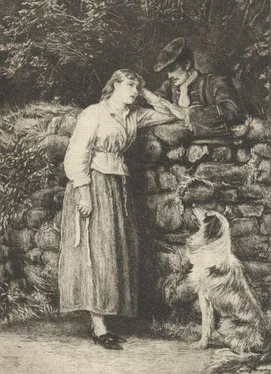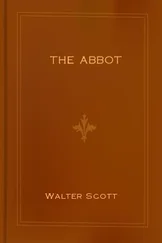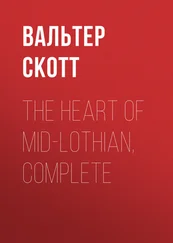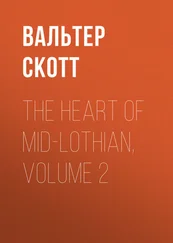Walter Scott - The Heart of Mid-Lothian
Здесь есть возможность читать онлайн «Walter Scott - The Heart of Mid-Lothian» весь текст электронной книги совершенно бесплатно (целиком полную версию без сокращений). В некоторых случаях можно слушать аудио, скачать через торрент в формате fb2 и присутствует краткое содержание. Год выпуска: 2004, Жанр: Исторические приключения, на английском языке. Описание произведения, (предисловие) а так же отзывы посетителей доступны на портале библиотеки ЛибКат.
- Название:The Heart of Mid-Lothian
- Автор:
- Жанр:
- Год:2004
- ISBN:нет данных
- Рейтинг книги:3 / 5. Голосов: 1
-
Избранное:Добавить в избранное
- Отзывы:
-
Ваша оценка:
- 60
- 1
- 2
- 3
- 4
- 5
The Heart of Mid-Lothian: краткое содержание, описание и аннотация
Предлагаем к чтению аннотацию, описание, краткое содержание или предисловие (зависит от того, что написал сам автор книги «The Heart of Mid-Lothian»). Если вы не нашли необходимую информацию о книге — напишите в комментариях, мы постараемся отыскать её.
The Heart of Mid-Lothian — читать онлайн бесплатно полную книгу (весь текст) целиком
Ниже представлен текст книги, разбитый по страницам. Система сохранения места последней прочитанной страницы, позволяет с удобством читать онлайн бесплатно книгу «The Heart of Mid-Lothian», без необходимости каждый раз заново искать на чём Вы остановились. Поставьте закладку, и сможете в любой момент перейти на страницу, на которой закончили чтение.
Интервал:
Закладка:
While their outposts continued thus vigilant, and suffered themselves neither from fear nor curiosity to neglect that part of the duty assigned to them, and while the main guards to the east and west secured them against interruption, a select body of the rioters thundered at the door of the jail, and demanded instant admission. No one answered, for the outer keeper had prudently made his escape with the keys at the commencement of the riot, and was nowhere to be found. The door was instantly assailed with sledge-hammers, iron crows, and the coulters of ploughs, ready provided for the purpose, with which they prized, heaved, and battered for some time with little effect; for the door, besides being of double oak planks, clenched, both endlong and athwart, with broad-headed nails, was so hung and secured as to yield to no means of forcing, without the expenditure of much time. The rioters, however, appeared determined to gain admittance. Gang after gang relieved each other at the exercise, for, of course, only a few could work at once; but gang after gang retired, exhausted with their violent exertions, without making much progress in forcing the prison door. Butler had been led up near to this the principal scene of action; so near, indeed, that he was almost deafened by the unceasing clang of the heavy fore-hammers against the iron-bound portal of the prison. He began to entertain hopes, as the task seemed protracted, that the populace might give it over in despair, or that some rescue might arrive to disperse them. There was a moment at which the latter seemed probable.
The magistrates, having assembled their officers, and some of the citizens who were willing to hazard themselves for the public tranquillity, now sallied forth from the tavern where they held their sitting, and approached the point of danger. Their officers went before them with links and torches, with a herald to read the riot-act, if necessary. They easily drove before them the outposts and videttes of the rioters; but when they approached the line of guard which the mob, or rather, we should say, the conspirators, had drawn across the street in the front of the Luckenbooths, they were received with an unintermitted volley of stones, and, on their nearer approach, the pikes, bayonets, and Lochaber-axes, of which the populace had possessed themselves, were presented against them. One of their ordinary officers, a strong resolute fellow, went forward, seized a rioter, and took from him a musket; but, being unsupported, he was instantly thrown on his back in the street, and disarmed in his turn. The officer was too happy to be permitted to rise and run away without receiving any farther injury; which afforded another remarkable instance of the mode in which these men had united a sort of moderation towards all others, with the most inflexible inveteracy against the object of their resentment. The magistrates, after vain attempts to make themselves heard and obeyed, possessing no means of enforcing their authority, were constrained to abandon the field to the rioters, and retreat in all speed from the showers of missiles that whistled around their ears.
The passive resistance of the Tolbooth gate promised to do more to baffle the purpose of the mob than the active interference of the magistrates. The heavy sledge-hammers continued to din against it without intermission, and with a noise which, echoed from the lofty buildings around the spot, seemed enough to have alarmed the garrison in the Castle. It was circulated among the rioters, that the troops would march down to disperse them, unless they could execute their purpose without loss of time; or that, even without quitting the fortress, the garrison might obtain the same end by throwing a bomb or two upon the street.
Urged by such motives for apprehension, they eagerly relieved each other at the labour of assailing the Tolbooth door: yet such was its strength, that it still defied their efforts. At length, a voice was heard to pronounce the words, "Try it with fire." The rioters, with an unanimous shout, called for combustibles, and as all their wishes seemed to be instantly supplied, they were soon in possession of two or three empty tar-barrels. A huge red glaring bonfire speedily arose close to the door of the prison, sending up a tall column of smoke and flame against its antique turrets and strongly-grated windows, and illuminating the ferocious and wild gestures of the rioters, who surrounded the place, as well as the pale and anxious groups of those, who, from windows in the vicinage, watched the progress of this alarming scene. The mob fed the fire with whatever they could find fit for the purpose. The flames roared and crackled among the heaps of nourishment piled on the fire, and a terrible shout soon announced that the door had kindled, and was in the act of being destroyed. The fire was suffered to decay, but, long ere it was quite extinguished, the most forward of the rioters rushed, in their impatience, one after another, over its yet smouldering remains. Thick showers of sparkles rose high in the air, as man after man bounded over the glowing embers, and disturbed them in their passage. It was now obvious to Butler, and all others who were present, that the rioters would be instantly in possession of their victim, and have it in their power to work their pleasure upon him, whatever that might be. [C]
CHAPTER SIXTH.
The evil you teach us,
We will execute; and it shall go hard, but we will
Better the instruction.
The unhappy object of this remarkable disturbance had been that day delivered from the apprehension of public execution, and his joy was the greater, as he had some reason to question whether Government would have run the risk of unpopularity by interfering in his favour, after he had been legally convicted by the verdict of a jury, of a crime so very obnoxious. Relieved from this doubtful state of mind, his heart was merry within him, and he thought, in the emphatic words of Scripture on a similar occasion, that surely the bitterness of death was past. Some of his friends, however, who had watched the manner and behaviour of the crowd when they were made acquainted with the reprieve, were of a different opinion. They augured, from the unusual sternness and silence with which they bore their disappointment, that the populace nourished some scheme of sudden and desperate vengeance; and they advised Porteous to lose no time in petitioning the proper authorities, that he might be conveyed to the Castle under a sufficient guard, to remain there in security until his ultimate fate should be determined. Habituated, however, by his office, to overawe the rabble of the city, Porteous could not suspect them of an attempt so audacious as to storm a strong and defensible prison; and, despising the advice by which he might have been saved, he spent the afternoon of the eventful day in giving an entertainment to some friends who visited him in jail, several of whom, by the indulgence of the Captain of the Tolbooth, with whom he had an old intimacy, arising from their official connection, were even permitted to remain to supper with him, though contrary to the rules of the jail.
It was, therefore, in the hour of unalloyed mirth, when this unfortunate wretch was "full of bread," hot with wine, and high in mistimed and ill-grounded confidence, and alas! with all his sins full blown, when the first distant' shouts of the rioters mingled with the song of merriment and intemperance. The hurried call of the jailor to the guests, requiring them instantly to depart, and his yet more hasty intimation that a dreadful and determined mob had possessed themselves of the city gates and guard-house, were the first explanation of these fearful clamours.
Porteous might, however, have eluded the fury from which the force of authority could not protect him, had he thought of slipping on some disguise, and leaving the prison along with his guests. It is probable that the jailor might have connived at his escape, or even that in the hurry of this alarming contingency, he might not have observed it. But Porteous and his friends alike wanted presence of mind to suggest or execute such a plan of escape. The former hastily fled from a place where their own safety seemed compromised, and the latter, in a state resembling stupefaction, awaited in his apartment the termination of the enterprise of the rioters. The cessation of the clang of the instruments with which they had at first attempted to force the door, gave him momentary relief. The flattering hopes, that the military had marched into the city, either from the Castle or from the suburbs, and that the rioters were intimidated, and dispersing, were soon destroyed by the broad and glaring light of the flames, which, illuminating through the grated window every corner of his apartment, plainly showed that the mob, determined on their fatal purpose, had adopted a means of forcing entrance equally desperate and certain.
Читать дальшеИнтервал:
Закладка:
Похожие книги на «The Heart of Mid-Lothian»
Представляем Вашему вниманию похожие книги на «The Heart of Mid-Lothian» списком для выбора. Мы отобрали схожую по названию и смыслу литературу в надежде предоставить читателям больше вариантов отыскать новые, интересные, ещё непрочитанные произведения.
Обсуждение, отзывы о книге «The Heart of Mid-Lothian» и просто собственные мнения читателей. Оставьте ваши комментарии, напишите, что Вы думаете о произведении, его смысле или главных героях. Укажите что конкретно понравилось, а что нет, и почему Вы так считаете.








